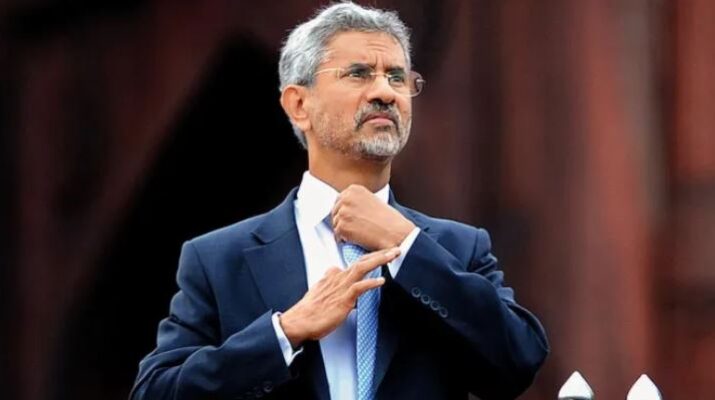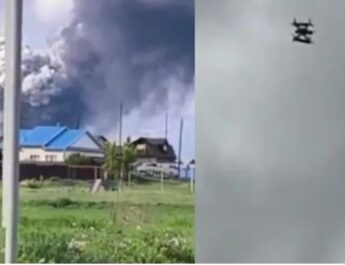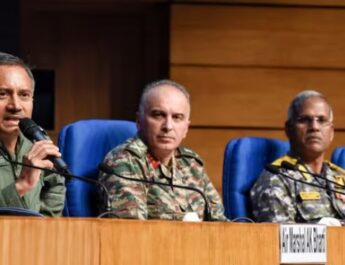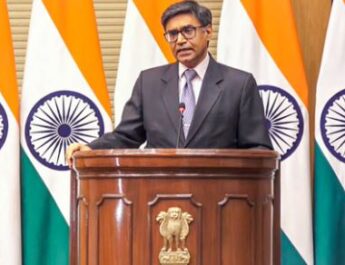New Delhi: External affairs minister S. Jaishankar did not hold back as he made a pointed criticism of Pakistan regarding its connections to terrorism. In an interview with the Dutch newspaper De Volkskrant on Thursday, he rejected the notion that Islamabad is oblivious to the terror networks operating from its territory. Jaishankar asserted that both the Pakistani state and its military are complicit in terrorism. The external affairs minister was in the Netherlands, which is India’s second-largest trading partner in the European Union, on a diplomatic mission aimed at enhancing India-Dutch relations.
He praised the Indian armed forces’ Operation Sindoor, stating that the nation “deserves recognition for its efforts against terrorism”. However, from the outset, the EAM emphasized that “let’s not pretend that Pakistan is not involved”. He reaffirmed India’s position against terrorism, expressing the desire for a conclusive end to this issue.
When questioned about his earlier remark labeling Pakistan as the “epicentre of terrorism”, Jaishankar clarified, “I am not suggesting that, I am stating that” (referring to Islamabad’s support for terrorist groups operating within its borders).
“Imagine if there were significant military installations in the heart of a city like Amsterdam where tens of thousands gathered for military training; would you claim that your government is unaware of that? Certainly not,” he remarked to the Dutch publication.
Pakistan state, army involved
Furthermore, he suggested that the global community should not subscribe to the idea that Pakistan is oblivious to the ongoing situation.
“The most infamous terrorists listed by the United Nations (UN) sanctions are all based in Pakistan. They function openly in major cities during daylight hours. Their locations are well-known. Their operations are recognized. Their connections are established. Therefore, let us not act as if Pakistan is uninvolved. The state is complicit. The military is deeply entrenched in this matter,” Jaishankar stated.
The external affairs minister also acknowledged that the ceasefire agreement, established on May 10, has temporarily halted the military actions that India and Pakistan were conducting against one another.
Jaishankar’s caution to Pakistan
However, Jaishankar cautioned that if terrorist activities originating from Pakistan persist, “there will be repercussions. The Pakistanis need to comprehend this very clearly.”
Jaishankar further clarified that for India, the matters of terrorism and Jammu and Kashmir are entirely distinct issues. He emphasized that for India, “terrorism is a standalone, wholly intolerable international crime that cannot be excused or rationalized.”
He recalled the terrorist incident that occurred in Srinagar, Jammu and Kashmir, on April 22, which resulted in the deaths of 26 individuals, primarily civilians. “The terrorists aimed at the thriving tourism sector in Jammu and Kashmir with their assault. They are willing to devastate the region for their own narrow, selfish interests. They also intentionally infused the attack with a religious connotation. The international community should not endorse such actions,” Jaishankar remarked.
The Kashmir issue will be resolved with Pakistan
Highlighting that Jammu and Kashmir became part of India when the country and Pakistan divided in 1947, Jaishankar reiterated New Delhi’s position that “the illegal occupiers must return the parts they have unlawfully occupied to their rightful owner. And that rightful owner is us.”
Trump publicly asserted his role in facilitating a ceasefire agreement between India and Pakistan, who were involved in severe cross-border conflict following Operation Sindoor on May 7. He mentioned that by leveraging increased “trade” with both nations, he played a crucial role in persuading them to reach the agreement.




